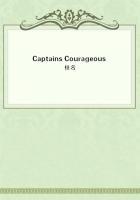Girls in lawn skirts, shirt waists, and garden hats, went to and fro, invariably in couples, coming in and out of the drug store, the grocery store, and haberdasher's, or lingering in front of the Post Office, which was on a corner under the I.O.O.F.hall.
Young men, in shirt sleeves, with brown, wicker cuff-protectors over their forearms, and pencils behind their ears, bustled in front of the grocery store, anxious and preoccupied.A very old man, a Mexican, in ragged white trousers and bare feet, sat on a horse-block in front of the barber shop, holding a horse by a rope around its neck.A Chinaman went by, teetering under the weight of his market baskets slung on a pole across his shoulders.In the neighbourhood of the hotel, the Yosemite House, travelling salesmen, drummers for jewelry firms of San Francisco, commercial agents, insurance men, well- dressed, metropolitan, debonair, stood about cracking jokes, or hurried in and out of the flapping white doors of the Yosemite barroom.The Yosemite 'bus and City 'bus passed up the street, on the way from the morning train, each with its two or three passengers.A very narrow wagon, belonging to the Cole & Colemore Harvester Works, went by, loaded with long strips of iron that made a horrible din as they jarred over the unevenness of the pavement.The electric car line, the city's boast, did a brisk business, its cars whirring from end to end of the street, with a jangling of bells and a moaning plaint of gearing.On the stone bulkheads of the grass plat around the new City Hall, the usual loafers sat, chewing tobacco, swapping stories.In the park were the inevitable array of nursemaids, skylarking couples, and ragged little boys.A single policeman, in grey coat and helmet, friend and acquaintance of every man and woman in the town, stood by the park entrance, leaning an elbow on the fence post, twirling his club.
But in the centre of the best business block of the street was a three-story building of rough brown stone, set off with plate glass windows and gold-lettered signs.One of these latter read, "Pacific and Southwestern Railroad, Freight and Passenger Office," while another much smaller, beneath the windows of the second story bore the inscription, "P.and S.W.Land Office."Annixter hitched his horse to the iron post in front of this building, and tramped up to the second floor, letting himself into an office where a couple of clerks and bookkeepers sat at work behind a high wire screen.One of these latter recognised him and came forward.
"Hello," said Annixter abruptly, scowling the while."Is your boss in? Is Ruggles in?"The bookkeeper led Annixter to the private office in an adjoining room, ushering him through a door, on the frosted glass of which was painted the name, "Cyrus Blakelee Ruggles." Inside, a man in a frock coat, shoestring necktie, and Stetson hat, sat writing at a roller-top desk.Over this desk was a vast map of the railroad holdings in the country about Bonneville and Guadalajara, the alternate sections belonging to the Corporation accurately plotted.
Ruggles was cordial in his welcome of Annixter.He had a way of fiddling with his pencil continually while he talked, scribbling vague lines and fragments of words and names on stray bits of paper, and no sooner had Annixter sat down than he had begun to write, in full-bellied script, ANN ANN all over his blotting pad.
"I want to see about those lands of mine--I mean of yours--of the railroad's," Annixter commenced at once."I want to know when Ican buy.I'm sick of fooling along like this.""Well, Mr.Annixter," observed Ruggles, writing a great L before the ANN, and finishing it off with a flourishing D."The lands"--he crossed out one of the N's and noted the effect with a hasty glance--"the lands are practically yours.You have an option on them indefinitely, and, as it is, you don't have to pay the taxes.""Rot your option! I want to own them," Annixter declared."What have you people got to gain by putting off selling them to us.
Here this thing has dragged along for over eight years.When Icame in on Quien Sabe, the understanding was that the lands--your alternate sections--were to be conveyed to me within a few months.""The land had not been patented to us then," answered Ruggles.
"Well, it has been now, I guess," retorted Annixter.
"I'm sure I couldn't tell you, Mr.Annixter."Annixter crossed his legs weariedly.
"Oh, what's the good of lying, Ruggles?You know better than to talk that way to me."Ruggles's face flushed on the instant, but he checked his answer and laughed instead.
"Oh, if you know so much about it--" he observed.
"Well, when are you going to sell to me?""I'm only acting for the General Office, Mr.Annixter," returned Ruggles."Whenever the Directors are ready to take that matter up, I'll be only too glad to put it through for you.""As if you didn't know.Look here, you're not talking to old Broderson.Wake up, Ruggles.What's all this talk in Genslinger's rag about the grading of the value of our lands this winter and an advance in the price?"Ruggles spread out his hands with a deprecatory gesture.
"I don't own the 'Mercury,'" he said.
"Well, your company does."
"If it does, I don't know anything about it.""Oh, rot! As if you and Genslinger and S.Behrman didn't run the whole show down here.Come on, let's have it, Ruggles.What does S.Behrman pay Genslinger for inserting that three-inch ad.
of the P.and S.W.in his paper?Ten thousand a year, hey?""Oh, why not a hundred thousand and be done with it?" returned the other, willing to take it as a joke.
Instead of replying, Annixter drew his check-book from his inside pocket.
"Let me take that fountain pen of yours," he said.Holding the book on his knee he wrote out a check, tore it carefully from the stub, and laid it on the desk in front of Ruggles.
"What's this?" asked Ruggles.













